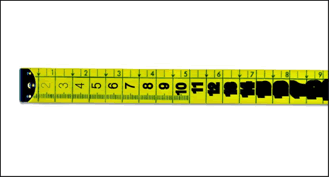04 Dic Paradoja del exceso

© Ruca
English Follows | Chinese Follows
Me gusta cada vez menos ir a comprar al supermercado. Y no porque deba convertirme en una especie de sherpa que acarrea las bolsas hasta el coche, y después las suba a casa, sino porque la enorme cantidad de productos allí disponibles me marea. Primero, porque me hace sentir mal que yo disponga de tal diversidad, excesiva, mientras otras partes del mundo están como están. Y segundo, porque simplemente ante una oferta tan excesiva, en muchas ocasiones no sé cómo escoger, y ello me crea cierta ansiedad. Mi ejemplo preferido de oferta en exceso la encontramos en los lineales dedicados a la leche: ¿pero es qué hay alguna forma humana de distinguir, más allá del mero precio, entre una oferta tan ingente, tan poco diferenciada entre si?
Creo que este ejemplo ilustra muy bien uno de los dramas del mundo consumista, ya nos pongamos en el lado de los consumidores o de las empresas. Estamos inundados en el exceso. Hay tanto de todo que no sabes por qué decidirte. Hay un exceso de oferta de productos. Hay un exceso de información, ver IdeaFuerza Infoxicación. ¿Se te ha pasado por la cabeza comprarte un coche? ¿Cuál escoger? ¿Dónde comprarlo? ¿Cómo pagarlo (crédito, renting, leasing)? ¿Quieres invertir en un fondo de inversión? ¿Cuál, de entre unos cuantos miles? ¿Cómo? ¿Dónde? ¿Has pensado en pasar de la PDA y móvil a una solución única? ¿Te compras una PDA con teléfono, y cuál, o un teléfono inteligente, y cuál? ¿Y dónde? ¿Y cómo lo pagas? ¿Solución? No comprar. Posponer tu decisión. Los consumidores quieren opciones, es cierto, pero demasiadas pueden paralizarlo.
¿Solución? Puede que haya varias. Una, la más usada por la gente, creo, es procurarse alguien que te asesore, alguien con una ?opinión informada?. Alguien de quién te fíes, un asesor, un referente, un prescriptor, a ser posible que haya tenido previamente la experiencia de compra en la que tu estás ahora. Ello da una especial importancia, desde el punto de vista de las empresas, a los referentes sociales, a personas que marcan tendencias, y en los que la gente puede mirarse como en un espejo ?yo quiero ser como él/ella?, (bueno, ésta es la teoría. Porque, me pregunto, ¿sirve de algo que yo diga que estoy enamorado de mi Sony Vaio? Ser referente de productos creo que no es tan fácil). ?En un mercado ruidoso, focaliza tu mensaje a las bocas que importan? (o sea, da a conocer tu producto a quién tenga prestigio en un colectivo, para que lo difunda con su ?opinión informada?), nos dice el ilustrador Don Moyer, que utiliza esta frase en una de sus síntesis visuales de conceptos, publicada en Harvard Business Review de febrero de 2004.
Pero la otra solución es, simplemente, que haya menos oferta, que se simplifiquen los lineales del super. Que decidir y escoger sea un acto más humano, simple y directo. Ver IdeaFuerza Ansiedad por la simplicidad.
El sociólogo norteamericano Barry Schwartz lo explica con autoridad y acierto en su libro The paradox of choice: why more is less. La gente parece progresivamente abrumada por el exceso de alternativas que se le ofrecen. Paradoja: somos infelices en un mundo en el que tenemos de todo. La abundancia excesiva de posibilidades de elección lleva a la ansiedad y a la parálisis. Una lectura, profunda, con información y conocimiento teórico, sobre la psicología de la elección en un entorno de exceso. Algo similar nos dice Gregg Easterbrook en el suyo, The progress paradox: how lifes get better while people feel worse, en el que nos describe una América cada vez más triste, inundada en su abundancia. Su portada es ilustrada magníficamente: por una fotografía de ¿un vaso medio lleno o medio vacío? La imagen sintetiza la idea de que hay que manejar bien el balance (tradeoff) entre una oferta tremendamente variada y una demanda tremendamente servida, pero abrumada, perdida, paralizada por el exceso. Tristeza que deriva, paradójicamente, de no tener escasez.
Pero, una nota de atención: ¿no será el problema del exceso, en realidad, una cuestión de cómo se presenta? No es acaso una sinfonía musical una compleja obra informacional (en su producción y codificación) que, sin embargo, ¿es tremendamente fácil de ?leer? (o sea, oír)? ¿Qué debemos hacer para que el lector pueda ?leer? (absorber, o sea, comprender) más fácilmente lo que le queremos proponer? ¿Cómo convertir una propuesta en una sintonía que pueda ?disfrutar??
The paradox of excess
Every time I go to the supermarket, I like it less. It’s not that I have to turn into a kind of Sherpa to drag my bags to the car, and haul them home afterwards, but that the enormous quantity of products available there makes me dizzy. First of all, I feel guilty that I am offered such an extravagant variety of products while other parts of the world are the way they are. And secondly, with such an excessive display of products before me to choose from, often I simply can’t decide, and that makes me nervous. My favourite example of this variety carried to excess is what you find in the milk section. How is it humanly possible to decide, apart from mere price, among such a huge selection, with such little differences within it?
I think this example is a good illustration of one of the dramas of the consumerist world, whether you’re on the side of consumers or business. We are inundated by excess. There’s so much of everything that you don’t know how to decide. There’s too much product on offer. There’s too much information. See IdeaFuerza Infoxication. Have you ever thought of buying a car? Which do you choose? Where do you buy it? How do you pay for it (a loan, renting, leasing…)? Do you want to invest in a mutual fund? Which one, out of several thousand? How? Where? Have you thought about converting your PDA and cell phone into a single device? Will you buy a PDA with a phone, and which model, or an intelligent phone, and which model? And where? And how will you pay for it? The solution? Not to buy one. Put off your decision. It’s true that consumers want options, but too many can paralyse it.
The solution? There could be several. The one used by most people, I think, is to get hold of someone who advises you, someone with «an informed opinion.» This is someone you can trust: an adviser; a point of reference; a prescriber; if possible, someone who has previously had the same purchasing experience that you are having now. From the business point of view, this gives a special importance to social references, to people who mark tendencies and make other people look at them like in a mirror and say, «I want to be like him/her.» (Well, that’s the theory. I wonder, though, is it worth anything if I say I’m in love with my Sony Vaio? I don’t think it’s so easy to be a reference for products.) «In a noisy market, focus your message on mouths that matter,» (that is, make your product known to those who have prestige in a collective, so that they spread it with their «informed opinion») says the illustrator Don Moyer, who uses this phrase in one of his visual syntheses of concepts, published in the Harvard Business Review of February 2004.
But the other solution is, simply, that there be less of a selection, that the aisles at the supermarket be simplified. This would turn decision-making and choice into a more simple and direct human action. See IdeaFuerza Ansiedad for the simplicity.
The American sociologist Barry Schwartz explains this aptly and authoritatively in his book The Paradox of Choice: Why More is Less. People seem progressively overwhelmed by the excess of alternatives they are offered. This is the paradox: we are all unhappy in a world where we have everything. The extreme abundance of possibilities of choices leads to anxiety and paralysis. It is a profound read, with information and theoretical knowledge on the psychology of choice in an environment of excess. Gregg Easterbrook discusses something similar in his book, The Progress Paradox: How Life Gets Better While People Feel Worse, in which he describes the United States as getting sadder all the time, inundated with abundance. The cover is magnificently illustrated: the photograph depicts a glass – half full or half empty? The image synthesizes the idea that a trade-off must be negotiated between a tremendously varied supply and a demand that is tremendously serviced, but overwhelmed, lost, and paralysed by excess. It’s a sadness that derives, paradoxically, from the lack of scarcity.
But, attention, please: isn’t the problem of excess, in reality, a question of how you look at it? Isn’t a musical symphony a complex work of information (in its production and codification) that is, however, tremendously easy to «read» (that is, «hear»?) What should we do so that the reader can «read» (absorb, that is, understand) more easily what we want to propose? How can we convert the proposal into a symphony that can be «enjoyed»?
Chinese
过剩现象的自体矛盾
我 越来越不喜欢去超市买东西了。不是因为我得变成一个搬运工,把购物袋从超市搬到车上,再从车上搬到家里,而是因为超市里所拥有的可以购买的海量的商品足以 使我眩晕。首先,我会感到不快,因为我不能拥有这样超出所需的大量的多种的所属物,但世界上确实有一部分地方可以做到这一点。其次,由于可选择的范围实在 太广,很多时候我会觉得无从下手,这就让我感到焦虑。我偏爱的一个例子是关于乳品生产,难道真的有某种人类方式可以在那狂多的品牌和系列中区分那几乎不存 在的差别吗?
我认为这个例子很好地说明了消费社会的问题之一,我们就来分别看看消费者和公司在其中的状况。我们正处在过剩的洪水之中。什么东西都有那么多,简直不知道该如何跟你解释。消费品过剩,信息过剩,请阅读概念:信息中毒的力量1 。你想过买车吗?买什么车?去哪里买?怎么付款(信用卡、租用还是续借)?你想买基金吗?买哪一支?那里有成千上百的等着你。怎么买?哪里买?你想过把 PDA(掌上电脑)和手机合为一体吗?给你买一个可以打电话的 PDA,买哪个?或者买一个智能手机?买哪个?怎么付款?答案在哪?干脆不买。你把决定推迟了。确实,消费者需要选择,但是选择太多反而会令他们脑瘫。
解 决方案?可能有不少。第一种,也是人们最常用的,就是找人提供参考意见,一个有?信息处理结果?的人,一个你信任的人,你的顾问,一个参考意见,一个灵 感,一个可能之前有过相关购买经验的人。从公司的角度考虑,这一点很重要,因为这个人会给出社会参考意见,引导趋势,让人们以之为榜样并想着 ?我也要像他/她那样?(当然,这只是理论,因为,如果我说我超级喜欢我的SONY VAIO笔记本,这会有用吗?要成为一个产品的参考尺度并不是一件容易的事情)。?我们的市场是嘈杂的,集中你的信息讲给那些对之有影响的对象?(也就是 说,让你的产品在某社会层面或阶级中有影响力的人物知道,然后让他用自己的?信息处理结果?去影响周围的人)??在2004年2月号Harvard Business Review(《哈佛商业述评》)杂志中Don Moyer曾使用这句话来直观地总结他的概念。
然而另外一种解决方案是,很简单的,少来点选择吧,把超市的分类和系统都简化一下。让做决定和选择成为更人性化的活动,明了而直接。请阅读概念:焦虑作用的简化2 。
美国社会学者Barry Schwartz权威性地在他的书中做了解释??选择的自体矛盾性:为什么更多即更少 (原文名称为The paradox of choice: why more is less)。 人们渐渐地开始被过多的选择可能性压的喘不过气。其自体矛盾在于:我们如果要什么有什么,那反而就不快乐了。过度的可选性会把我们带向焦虑和麻痹。心理学 方面正在做一项关于在过剩可选状态下做决定的深入的研究,包括信息和理论知识。Gregg Easterbrook在他的书中也提出过相似的观点??进步的自体矛盾性:人们是怎样在一个生活越来越好的社会中感觉越来越差的(原文名称为:The progress paradox: how lifes get better while people feel worse)。 在该文中,他向我们描述了一个越来越悲惨的美国,被过剩的丰富所吞没。那本书的封面插图非常精妙:是一张关于?满瓶子水还是半瓶子水?的照片,它传达了要 学会在供求之间掌握平衡这样一个信息,供应如何的多样性,需求如何的最低要求化,结果却被过剩现象搞得迷失和麻痹。总而言之,衍生出的惨状既是:我们缺乏 不足。
但同时,还要注意到另外一点:过剩现象在本质上是否仅是由于它的表达方式而造成的呢?比如一篇非常复杂信息量非常庞大的交响曲(构 思和谱曲)在我们看来却是很可?读?(听)的,没那么复杂的。我们应该怎么做才能使我们消费品的读者更容易地吸收(理解)我们想传达的信息?如何把一个市 场销售计划变成一曲动听的交响曲让消费者能够?乐在其中?呢?



Sorry, the comment form is closed at this time.